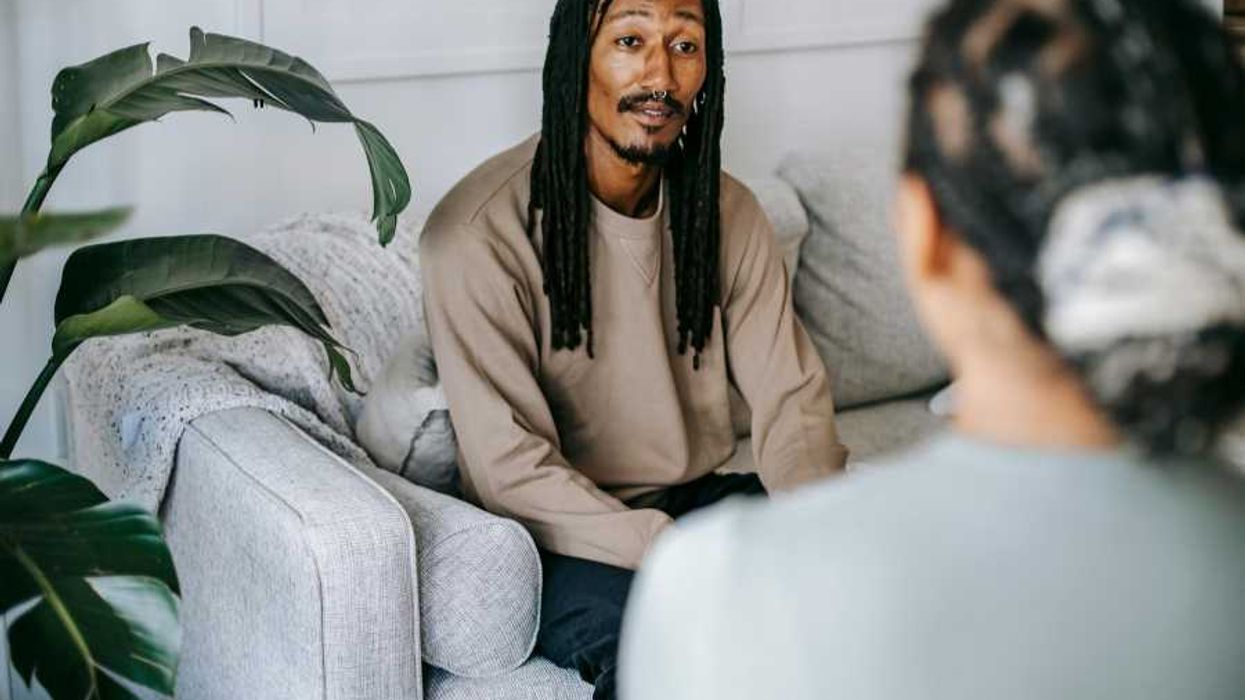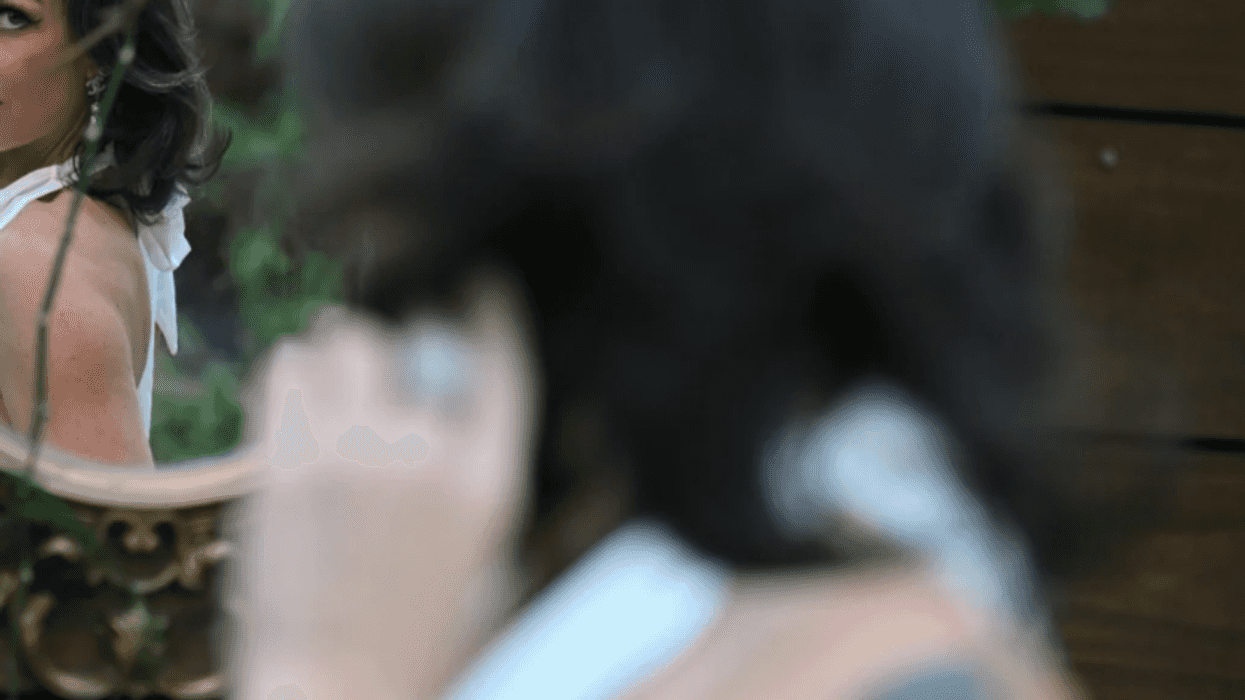Therapy can be life-changing, but the "Eureka" moments aren’t always highlighted, underlined, and screaming at you, "This is important!" Sometimes there are seemingly minor pieces of wisdom or advice that sneak up on you, lingering past your sessions and ultimately helping reshape your thinking in a crucial way.
Clearly, combing through Internet forums is no replacement for speaking with an actual flesh-and-blood therapist, but it’s interesting to look around online and read about people’s experiences. Which brings us to one particularly intriguing thread on Reddit titled, "What’s a small bombshell your therapist dropped during a session that completely shifted your perspective?" There are thousands of responses, and a small handful seemed to really resonate.
I picked five of those top comments and ran them by some trained professionals, who weighed in with their expertise. (We have to emphasize: A suggestion that helps one person may not help another. It's always best to consult a pro directly. Plus, different therapists will probably have different perspectives themselves—even on the info below.)
"Honesty without compassion is cruelty. Kindness without honesty is manipulation."
Alexis Skopos, a licensed mental health counselor, agrees with the statement, telling GOOD, "It is the concept of being nice vs kind. If you are nice, it is ultimately selfish as it is usually out of people-pleasing as well—there is no potential growth. Being kind is stating your truth but with care and also being realistic. We rob people of learning opportunities if we are not honest."
Lorain Moorehead, a licensed psychotherapist, tells GOOD that in Dialectical Behavior Therapy (DBT), "one of the modules" is interpersonal effectiveness, which "focuses on enhancing relationships through kindness and respect of others, along with self -respect, which is taught by acting authentically in line with your own integrity and values." She adds, "This evidence-based skills module highlights the importance of kindness as well as honesty."
"24 hours can start at any time. If you feel like you’ve messed up, instead of looking at the day as a failure, just decide it’s a new day and make this one better."
Skopos completely agrees with this train of thought: "I also say time is an illusion created by man. Right now would be 2 PM for all we know/care. I have clients do a reset every few hours of their day to start fresh and let go of what is not serving them that day."
Moorehead, meanwhile, says that "waiting until tomorrow" for a fresh start or perfect day of success is a "cognitive distortion" that "[minimizes] the skills a person has today and [overemphasizes] the skills they will have tomorrow to follow through successfully with a goal." She adds, "There can be benefits to starting with what you have and building."
"Him: 'Do you want to talk about your anxiety?'
Me: 'I don't have anxiety. Because as a kid, I figured out that if you imagine the worst possible outcomes, they won't catch you off guard and you won't be anxious.'
Him: 'That’s literally a textbook example for someone with chronic anxiety.'"
Moorehead says that it’s "common" for people to believe that fixating on negative situations will help them, "as if they are circumventing even worse outcomes." She adds, "It can be helpful to recognize that they feel they are taking action by preparing for the worst, but really ruminating is not an action; it is a thought process and one that research indicates fuels anxiety, depression, and self-doubt."
Skopos adds that anxiety "presents differently in every person," noting that "we are taught so many messages growing up to survive, but what we learned to survive will never help us thrive."
"Your brain is there to keep you alive, not happy. You need to do things that make you happy, not just expect it from your intellect."
Moorehead says that the human brain is "wired for survival, connection, learning, and cognition," and it’s our job to "find the right balance of each that leads to a pleasant emotions"—a challenge that is different for everyone. She says, "It is often trial and error and testing of hypotheses for an individual to determine which activities at what cadence, how much socializing and what type, how much learning and of what information can lead to the most joy."
Skopos adds, "All our brain wants to do is protect us. It usually does it in the worst way, but it has good intentions. Happiness is a journey that you must undergo and feed to your brain, not it feed you."
"Rest is productive too."
"Rest is required to give you the energy to do the thing," says Skopos. "If you do not take a break, your body will make you at the most inconvenient time. The connection with rest and productivity is jarring."
Moorehead notes that "messaging around rest" often develops early on "based on the attitudes [of] those around us regarding productivity." She adds, "Many families don’t allow the children to sleep in, or only show affection if someone is producing or achieving. The reality is that bodies and brains need rest to advance."



















 Oral Wegovy pills were approved by the Food and Drug Administration in December 2025 and became available for purchase in the U.S. in January 2026.
Oral Wegovy pills were approved by the Food and Drug Administration in December 2025 and became available for purchase in the U.S. in January 2026. Despite the effectiveness of GLP-1 drugs for weight loss, there is still no replacement for healthy lifestyle patterns, including regular exercise.
Despite the effectiveness of GLP-1 drugs for weight loss, there is still no replacement for healthy lifestyle patterns, including regular exercise.


 What foods would you pick without diet culture telling you what to do?
What foods would you pick without diet culture telling you what to do?  Flexibility can help you adapt to – and enjoy – different food situations.
Flexibility can help you adapt to – and enjoy – different food situations.
 Anxious young woman in the rain.Photo credit
Anxious young woman in the rain.Photo credit  Woman takes notes.Photo credit
Woman takes notes.Photo credit 
 Revenge can feel easier than forgiveness, which often brings sadness or anxiety.
Revenge can feel easier than forgiveness, which often brings sadness or anxiety. 
 In the past two years, two malaria vaccines have become available for babies starting at 5 months of age.
In the past two years, two malaria vaccines have become available for babies starting at 5 months of age. By exploiting vulnerabilities in the malaria parasite’s defense system, researchers hope to develop a treatment that blocks the parasite from entering cells.
By exploiting vulnerabilities in the malaria parasite’s defense system, researchers hope to develop a treatment that blocks the parasite from entering cells. Created with
Created with